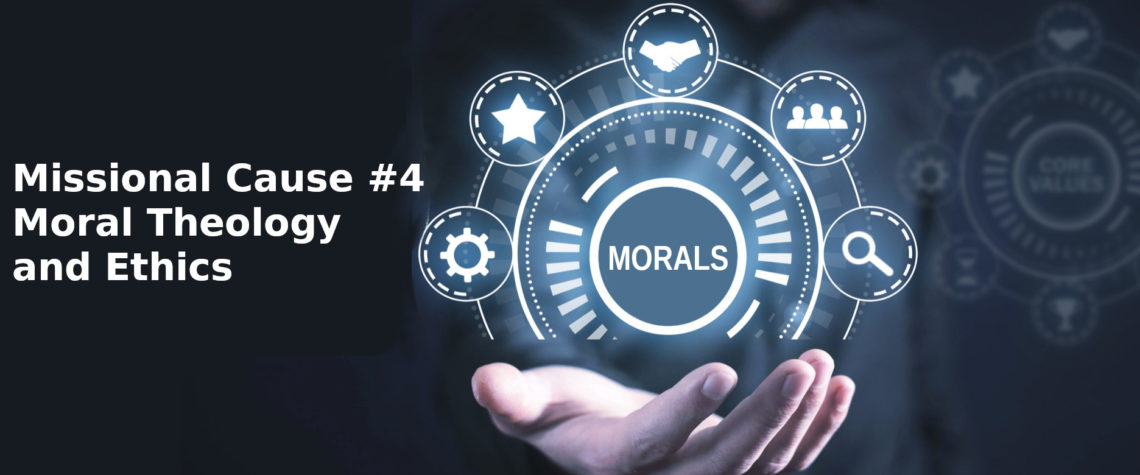Introduction
Christian organizations play a pivotal role in shaping the moral fabric of society, acting as agents of transformation rooted in biblical-theological and missional frameworks. Grounded in the teachings of Christ, these organizations are shaped by social, public, and moral theology, enabling them to address complex ethical issues that affect individuals and communities alike. Through a blend of scriptural wisdom and theological reflection, Christian organizations not only respond to contemporary ethical challenges but also seek to foster environments of justice, dignity, and holistic development. By integrating biblical principles with real-world applications, they promote moral growth, advocate for justice, and contribute to the flourishing of society. This essay delves into seven key arenas that Christian organizations address, demonstrating how faith and moral action are intertwined to reflect God’s call for justice, love, and integrity.
1. Ethical Leadership in Community Empowerment
Christian organizations view leadership not merely as a role but as a sacred responsibility, centered on ethical stewardship and the empowerment of communities. Ethical leadership within these organizations is grounded in biblical teachings that promote justice, fairness, and care for the vulnerable. Proverbs 31:8-9 exhorts leaders to “Speak up for those who cannot speak for themselves,” encapsulating the Christian ethic of leadership that prioritizes advocacy for marginalized and oppressed individuals. Christian leaders are called to embody Christ’s servant leadership model, where the well-being of others takes precedence over personal gain.
Ethical leadership in community empowerment often focuses on sustainable development, social equity, and the creation of systems that promote justice. These organizations invest in training leaders who are both spiritually grounded and equipped to tackle issues such as poverty, systemic injustice, and environmental degradation. Their work is a reflection of Micah 6:8’s call to “act justly, love mercy, and walk humbly with God,” ensuring that ethical leadership not only fosters community resilience but also embodies the mission of God in the world.
2. Fostering Integrity in Personal Conduct
Personal integrity, deeply valued in Christian ethics, is fundamental to the transformation of both individuals and society. Christian organizations place significant emphasis on nurturing this virtue, recognizing that moral consistency and truthfulness are integral to a life that honors God. Philippians 4:8’s call to dwell on whatever is true, noble, and admirable provides a biblical blueprint for living with integrity in every aspect of life.
By fostering personal integrity, Christian organizations encourage individuals to make ethical decisions that reflect their faith and character. This focus on integrity extends beyond private conduct to public life, influencing how people engage in their professions, relationships, and societal roles. Christian organizations often provide mentorship, counseling, and educational programs designed to cultivate these values, ensuring that individuals are equipped to resist corruption, uphold honesty, and pursue moral excellence in a world rife with ethical compromise. Such efforts are critical in promoting a society where trust and ethical behavior are cornerstones of communal life.
3. Promoting Justice in Governance
In advocating for justice in governance, Christian organizations draw from biblical teachings that emphasize the importance of righteous leadership. Romans 13:1-2 reminds believers that authority is established by God, and as such, governance should be aligned with principles of justice, equity, and accountability. Christian organizations are active in promoting ethical governance by influencing policy, advocating for human rights, and equipping leaders with tools for moral discernment.
They work to create a culture of transparency and accountability in political and organizational leadership, believing that these values are essential to upholding justice. These organizations frequently collaborate with governments, civil society, and faith communities to promote ethical standards in lawmaking, social policies, and public administration. Their efforts seek to dismantle corrupt systems and replace them with governance structures that reflect God’s heart for justice, echoing the prophet Amos’s call to “let justice roll down like waters, and righteousness like an ever-flowing stream” (Amos 5:24).
4. Engaging in Cross-Cultural Ethics
As part of the Missio Dei (mission of God), Christian organizations are called to engage ethically across cultures, promoting respect, understanding, and mutual dignity. The Great Commission in Matthew 28:19-20 is not only a mandate for evangelism but also a directive for cultural sensitivity and ethical interaction. Christian organizations, particularly in mission work, must navigate complex cultural landscapes while upholding the gospel message.
Ethical engagement requires that Christian organizations respect cultural diversity while advocating for universal biblical values such as justice, love, and human dignity. They strive to avoid cultural imperialism by honoring local customs and practices, discerning where to adapt and where to challenge based on biblical principles. This ethical framework allows for a redemptive approach to mission, where the gospel is shared in ways that are contextually appropriate and spiritually transformative. By engaging in cross-cultural ethics, Christian organizations contribute to peacebuilding, reconciliation, and the empowerment of diverse communities around the world.
5. Upholding Human Dignity
The doctrine of the imago Dei (image of God) serves as the theological foundation for the Christian view of human dignity. Christian organizations, drawing on this belief, advocate for the inherent worth of every person, regardless of race, gender, socioeconomic status, or ability. 1 Corinthians 6:19-20 reminds believers that their bodies are temples of the Holy Spirit, underscoring the importance of treating the body with respect and honor.
Christian organizations work tirelessly to promote human dignity in areas such as health care, human trafficking, and sexual ethics. They advocate for policies and practices that protect life, uphold bodily integrity, and provide care for the vulnerable. By addressing issues such as gender-based violence, exploitation, and neglect, these organizations affirm the sanctity of life and work toward a world where every individual’s dignity is recognized and protected. This commitment to upholding human dignity is not only a reflection of Christian compassion but also a practical outworking of God’s love for humanity.
6. Cultivating Virtues in Community Life
Christian organizations place a strong emphasis on the cultivation of virtues, recognizing that moral and spiritual growth happens within the context of community. Galatians 5:22-23 describes the fruit of the Spirit, which includes love, joy, peace, and other virtues essential for harmonious community life. These virtues, when practiced collectively, foster environments where justice, peace, and mutual care flourish.
Organizations foster these virtues through community programs, worship, and shared service projects, creating spaces where individuals can grow spiritually and morally. Christian organizations believe that cultivating virtues within communities is foundational for addressing social challenges such as violence, inequality, and division. By promoting virtues, they contribute to building resilient communities rooted in Christian love and mutual respect, demonstrating that moral excellence is both a personal and communal responsibility.
7. Integrating Moral Education
Moral education is central to the mission of Christian organizations, as they seek to form individuals who are not only intellectually capable but also ethically grounded. Proverbs 22:6 emphasizes the importance of starting moral education early, shaping the character and decision-making processes of individuals from a young age. Christian organizations integrate moral education into a variety of settings, from schools to churches, encouraging the development of ethical reasoning, empathy, and social responsibility.
Through curricula that incorporate biblical principles, Christian organizations address contemporary moral issues such as justice, equality, and environmental stewardship. By equipping individuals with a biblical worldview, they prepare them to navigate complex moral challenges in ways that reflect God’s justice, mercy, and love. This integration of moral education fosters the next generation of leaders and citizens who are prepared to contribute to society with wisdom, compassion, and integrity.
Conclusion
Christian organizations play an indispensable role in shaping the moral landscape of society, integrating faith with ethical action. Informed by biblical-theological and missional frameworks, they address pressing ethical issues such as leadership, integrity, justice, cross-cultural engagement, and human dignity. By fostering moral growth and promoting justice, Christian organizations contribute to the holistic development of individuals and communities, embodying Christ’s call to love and serve others. Through their commitment to ethical leadership, integrity, and justice, these organizations reflect God’s kingdom on earth, working toward the flourishing of all people and the realization of God’s redemptive purposes.

Dr. Curt Watke is a distinguished missiologist whose three-plus-decade-long career has significantly impacted Christian mission work in North America, particularly in under-reached and challenging regions. Holding a Ph.D. in Evangelism and Missions, Dr. Watke has focused on bridging cultural gaps and fostering sustainable Christian communities by developing innovative strategies that address contemporary challenges like globalization, urbanization, and religious pluralism. His emphasis on cultural sensitivity and contextualization in mission work is reflected in his collaborative writings, including notable works such as “Ministry Context Exploration: Understanding North American Cultures” and “Starting Reproducing Congregations.” Beyond his writing, Dr. Watke is a sought-after speaker and educator, lecturing at seminaries and conferences worldwide, and his teachings continue to inspire and equip new generations of missional leaders. His enduring legacy is marked by unwavering dedication to the mission of God and a profound influence on missional thought and practice. Dr. Watke serves as President and Professor of Evangelism & Missiology at Missional University.




